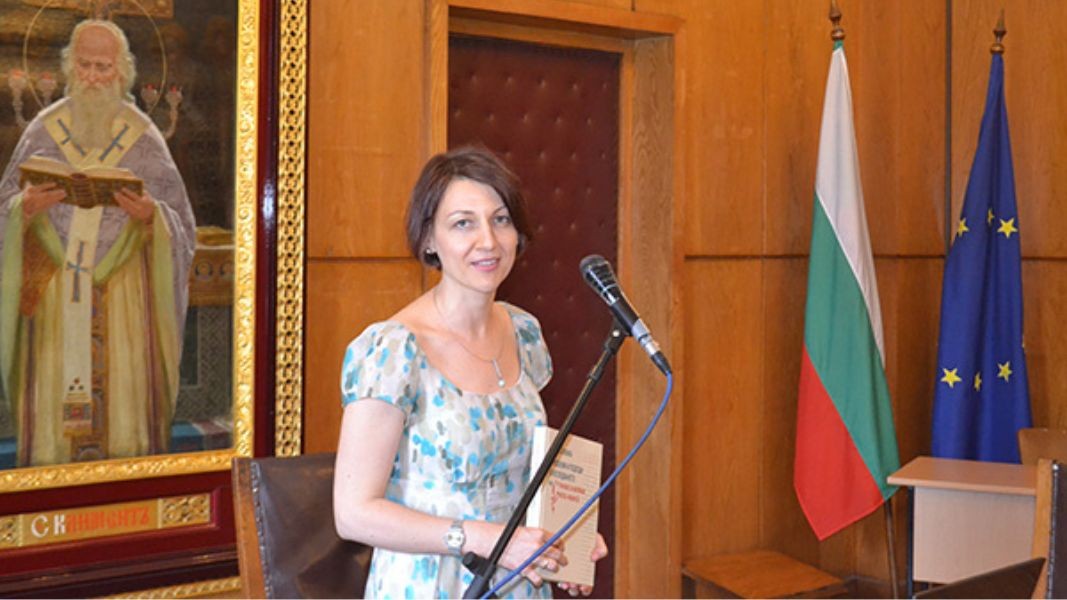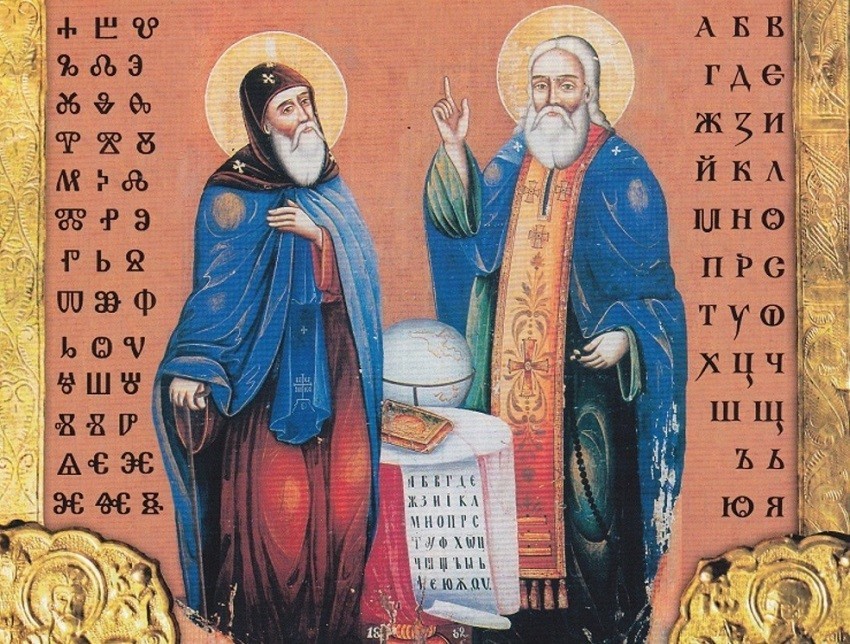Is the Slavic alphabet Bulgarian?
With the different interpretations of the historical facts taken out of the specific context, more and more often we can read that the brothers Cyril and Methodius from Thessaloniki created the oldest Slavic script not for the Bulgarians, but for the Moravian Slavs at the behest of Prince Rostislav, and that they had never been to Bulgaria before. "Yes, they are from Thessaloniki,” Prof. Elka Mircheva, deputy director of the Institute of the Bulgarian Language at the Bulgarian Academy of Sciences, tells Radio Bulgaria. “At that time the city was densely populated with a compact Slavic Bulgarian population that spoke Eastern Bulgarian dialect," she adds. It was this dialect that they took as the basis of the alphabet they created. Prof. Mircheva defines as an exceptional contribution, unattainable after them, the fact that Constantine-Cyril the Philosopher managed to find a precisely defined letter for each sound, thus covering all the specific features of the Bulgarian language.

It is an indisputable historical fact that the author of our writing is Constantine-Cyril the Philosopher. In the middle of the 9th century, it was him who took up the creation of a Slavic alphabet – the Glagolitic script, and together with his brother Methodius, translated the liturgical books using it.
When was the Glagolitic script created?
Here comes another controversial question - is 855 the exact year of creation of our script? It is the officially-accepted date in Bulgarian education and society, but Associate Professor Diana Atanasova from the Faculty of Slavic Philology of the Sofia University and a specialist in Medieval Bulgarian literature tells us about another hypothesis.

"The only written evidence that gives a specific number is "On the Letters" by Chernorizets Hrabar and the year indicated there is 6363, which can be recalculated and translated to the new calendar according to different calendars used in the Middle Ages. They were several, but the most popular were the Byzantine and Alexandrian, which give 855 and 863 respectively. Many historians support the thesis that the year is 855, due to the fact that in the life story of St. Cyril the Philosopher it is said that it was at that time when he went to his brother Methodius in a monastery in Asia Minor where the two resided and engaged in literature. In addition, the translation of the sacred scriptures also takes time. But a question immediately arises - for whom did they create this alphabet? And here come additional interpretations of the historical sources related to the indisputable policy of Byzantium for the evangelization of the peoples who inhabited the territories around it and which is the cause of the creation of the script."

Regardless of whether today you too will question what you learned at school or trust the academic expertise regarding the exact year of creation of Glagolitic script, or whether you call Glagolitic the Bulgarian or Slavic script, one thing is certain - its enormous importance for the formation and preservation of the Bulgarian national identity. Associate Professor Atanasova emphasized the humanitarian importance of educational work during the International Scientific Forum in Athens, dedicated to the saints, in which she presented a scientific report.
"The students of Cyril and Methodius had to create a language, not just written signs. And their work is also exceptional in that the creation of this language led to the emergence of a literature whose prestige and authority became equal to the most significant and accepted sacred languages of the era.
Publication in English: Al. Markov
Photos: ibl.bas.bg, uni-sofia.bg, uni-plovdiv.bg, BGNES
On November 30, the Bulgarian Orthodox Church honors the memory of St. Apostle Andrew . In Bulgaria the saint is known as Saint Andrey and the folk holiday as Andreevden . Saint Andrew’s Day gives the start to the series of winter holidays..
The head of the statue of Tyche, the goddess of Philippopolis, has been discovered in the Episcopal Basilica in Plovdiv, said the head of the excavations Lyubomir Merdzhanov. According to him, this is an extremely rare artefact that has been awaited..
105 years ago, on November 27, 1919, a treaty was signed in the Parisian suburb of Neuilly-sur-Seine, officially ending Bulgaria's participation in World War I (1914-1918). Historians define the document as "another national..

+359 2 9336 661
